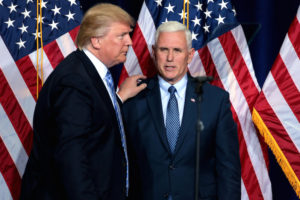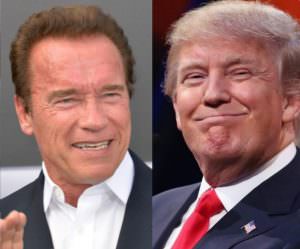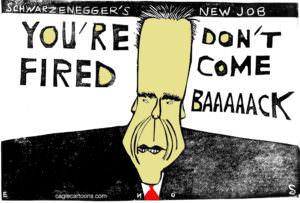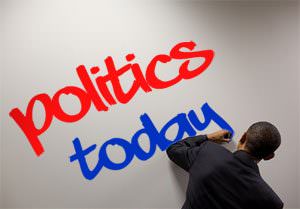If It’s Broke, Fix It
Hillary Clinton's health care proposal won't please progressives looking to do away with corporate insurance or conservatives who prefer unaffordable micromanaged care to government "bureaucracy," but at least it's a step in the right direction.WASHINGTON — The era of “Hillarycare” has ended. The notion that “Hillary Can” may have arrived.
Healing the nation’s sick health insurance system — the expensive, inequitable, inefficient and altogether infuriating monstrosity that fails to cover 47 million Americans — is a code red emergency. This patient has grown sicker since first lady Hillary Clinton was unable to convince Congress, and the country, that everyone had to be covered, that the rapacious insurance industry had to be reined in, that basic human decency required government to step in to make a basic insurance benefit available to all.
Americans now have come around to this way of thinking. Polls consistently show a majority supports some sort of national health insurance system that covers everyone — even if it means paying higher taxes. Of course, much of the polling back in 1993 also showed high public anxiety about health care and a similar hankering for change. That was before the political charges about Hillary and health care got so much uglier than the chatter about her headbands.
Now Clinton is the leading contender for the Democratic presidential nomination and the hands-down leader in knowledge of the country’s crazy-quilt health insurance and delivery system — not to mention the unrivaled expert on the crass political calculations that go into destroying every effort to change it.
The headline Clinton wanted out of Monday’s big health care speech in Iowa is the title of her plan: “The American Health Choices Plan.” Out is any suggestion of what conservatives call “one-size-fits-all” health insurance. Unmentioned is anything resembling “government-run health care,” the bogeyman Republicans believe still scares many Americans more than the genuine threat they’ll be bankrupted by illness.
Clinton instead proposes that all Americans be required to purchase a policy, with subsidies provided to those who can’t afford one. She reiterated her plan to crack down on some of the insurance industry’s most odious practices such as denying coverage to those with existing illnesses or even the expectation — based on some past test — that a person might one day develop a disease. Her approach is similar to that of Democratic rival John Edwards but less cumbersome in its specifics. It is more expansive than the health-insurance initiative offered by Barack Obama, who would not mandate universal coverage.
The details, though, are less relevant than the politics: Clinton is sure to anger liberals and positively infuriate Republicans — making her look like the responsible centrist in the fight.
Those, like me, who believe we should do away with the health insurance industry and break our increasingly unworkable reliance on employers as the linchpin of the system, have no candidate — other than the endearing but unelectable Dennis Kucinich — offering a simple, efficient, plan such as Medicare for everyone. Those who want to depict Clinton as an extremist may be even more disappointed. The idea of an individual mandate to buy insurance is — gasp — Republican!
Go back, once again, to 1993. Before the GOP decided to kill Clinton’s health care initiative altogether, 23 Republican senators — including minority leader Robert Dole of Kansas — signed onto legislation sponsored by the late Rhode Island Sen. John Chafee that would have accomplished universal coverage through such an individual requirement. Last year, Massachusetts — led by Mitt Romney when he billed himself as a problem-solving governor, not an archconservative wooing Republican presidential primary voters — used an individual mandate as the basis for its new universal coverage system. California Gov. Arnold Schwarzenegger also embraces the idea.
Now that Clinton agrees, Republicans who were once for individual mandates are fully expected to be against them.
Romney, who has distanced himself from the Massachusetts system he once championed, already has decried the new Clinton proposal as inspired by “European bureaucracies.” Never mind that the only bureaucracies Clinton relies upon are all-American: Medicare and the existing insurance system for federal government employees.
The rhetoric against any serious effort to repair the health insurance system that has broken the bank — and the hearts — of millions of Americans inevitably gets more divorced from reality the closer reform comes. Not that we’re so close to reform. It’s still more than a year until next November’s election. The outcome is unknown.
The only sure bet on Clinton’s return to the health insurance debate is that she’ll drive the opponents of change batty.
Marie Cocco’s e-mail address is mariecocco(at)washpost.com.
© 2007, Washington Post Writers Group
Your support matters…Independent journalism is under threat and overshadowed by heavily funded mainstream media.
You can help level the playing field. Become a member.
Your tax-deductible contribution keeps us digging beneath the headlines to give you thought-provoking, investigative reporting and analysis that unearths what's really happening- without compromise.
Give today to support our courageous, independent journalists.





You need to be a supporter to comment.
There are currently no responses to this article.
Be the first to respond.